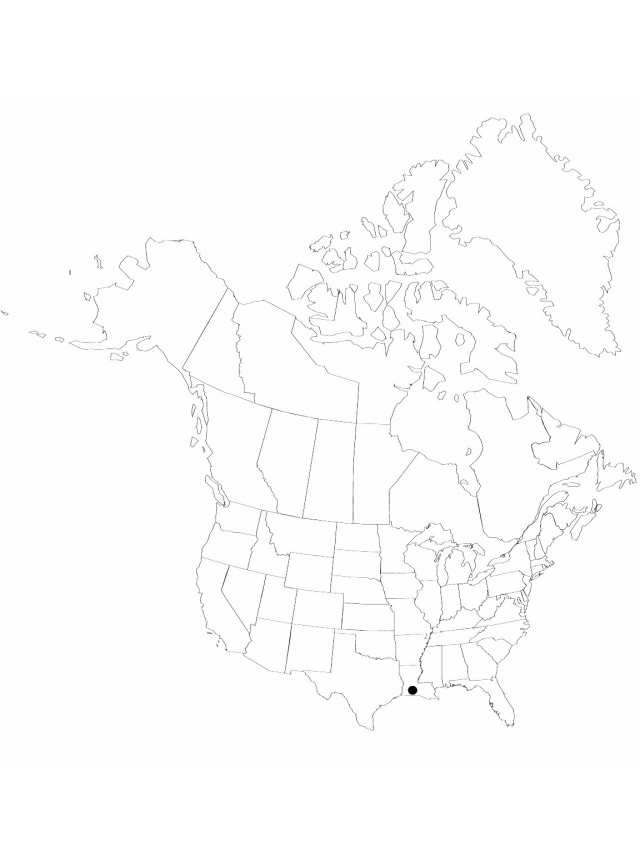Sagittaria guayanensis subsp. guayanensis
Herbs, annual or perennial, to 50 cm; rhizomes absent; stolons absent; corms present. Leaves submersed, phyllodial, flattened, 4–7 × 0.4–0.8 cm, or floating; petiole triangular, to 42 cm; blade sagittate, 3.5–10.5 × 1.5–8.5 cm, basal lobes shorter than to equal to length of remainder of blade. Inflorescences racemes, of 1–7 whorls, floating, 0.9–9 × 0.6–4 cm; peduncles 10.9–22 cm; bracts distinct or connate less than ¼ total length, broadly lanceolate to linear-lanceolate, 2.8–15 mm, delicate, not papillose; fruiting pedicels spreading to recurved, cylindric, 0.6–2.1 cm. Flowers 1.2–2 cm diam.; sepals spreading in staminate, erect in pistillate, enclosing flower or fruiting head; filaments cylindric, ± equaling anther length, glabrous; pistillate pedicellate, with ring of sterile stamens. Fruiting heads 0.5–1.8 cm diam.; achenes oblanceoloid, abaxially keeled, 1.7–2.2 × 1.2–1.5 mm, beaked; faces tuberculate, wings 1–3, ± dentate, glands absent; beak lateral, erect, 0.2–0.5 mm.
Phenology: Flowering summer–fall.
Habitat: Rice fields, ephemeral pools, roadside ditches, and streams
Elevation: 0–100 m
Distribution

La., c, s Mexico, West Indies, Central America, tropical South America.
Discussion
Selected References
None.